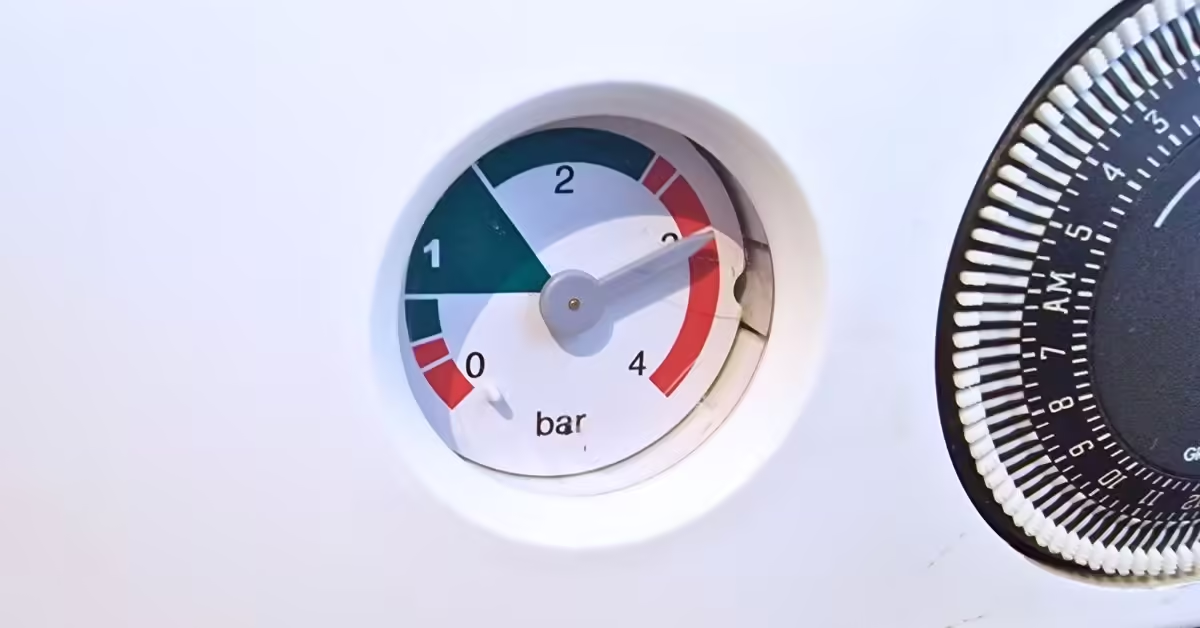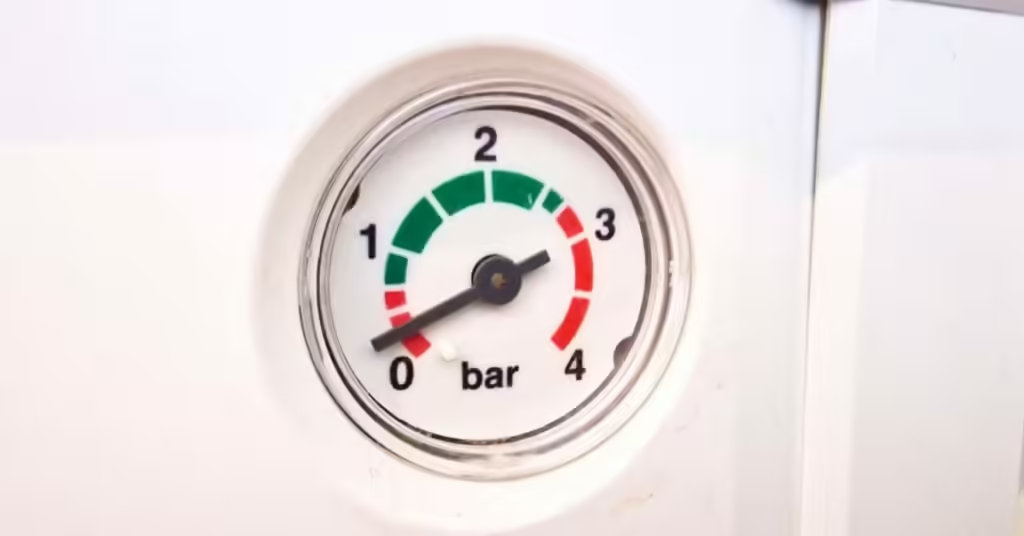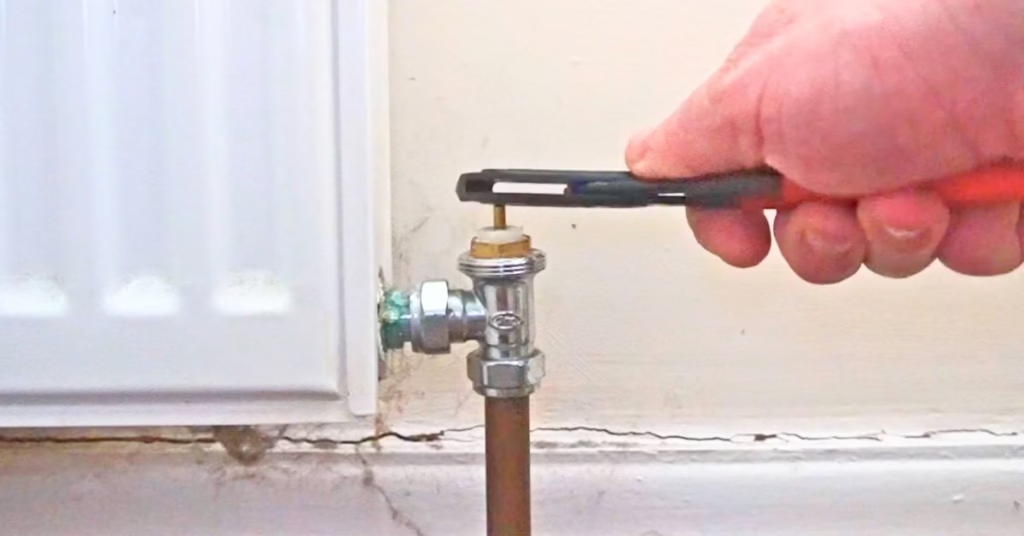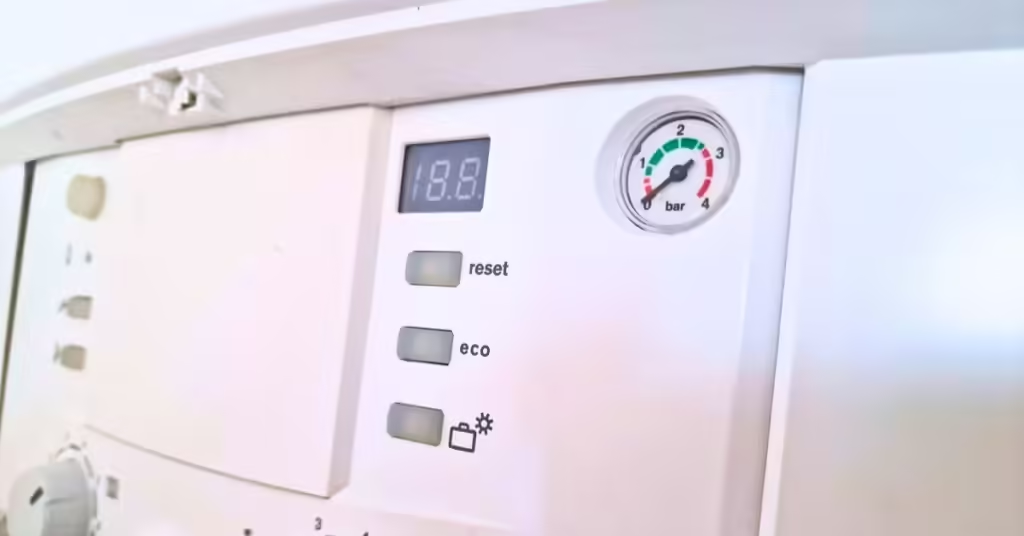Last updated on March 2nd, 2025
Having high boiler pressure is a problem. There are a few different causes and a few different fixes. When the pressure keeps rising too high it is usually followed by it dropping too low after the pressure relief valve lets the water out of the heating system.
I have been repairing boilers and heating systems for over a decade and have fixed many system pressure problems.
How to reduce the pressure
To reduce the pressure of your boiler you must let some water (or air) out of the heating system.
Video guide
Step-by-step guide
There are quite a lot of different ways to remove water from a heating system and reduce the boiler pressure.
Here are some that I use:
- Bleed a radiator
- Open a drain-off valve
- Open the pressure relief valve
- Crack a nut
- Open the magnetic filter
Bleed a radiator
Bleeding a radiator is the easiest way to reduce boiler pressure but it can get messy and takes a long time.
How to bleed a radiator:
- Put an old towel on the floor below the bleed valve
- Put the bleed key on the square bleed valve screw
- Turn it anti-clockwise until the water starts coming out
- Let the water stream into a bucket or catch
- Watch the pressure gauge
- Close the bleed valve when the pressure is at 1.5 bar.
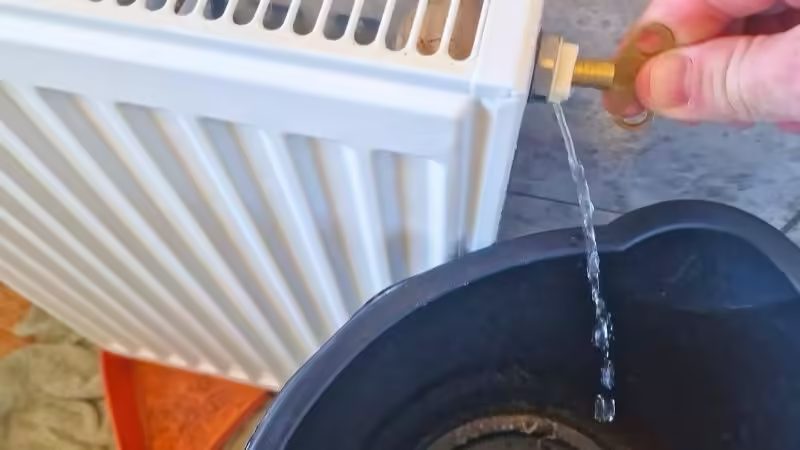
Open a drain-off valve
Most central heating systems have at least one drain-off valve. You can find them on radiator valves, radiator pipes, and on the bottom of boilers. They are for draining water out of the central heating system. You can connect a hose to a drain-off valve and run the pipe to a drain, then open up the square nut using an adjustable spanner until the water starts coming out.
If you don’t have a hose, you can open put a tub under the drain-off valve, and keep emptying it. This might take a while. Just keep checking the pressure gauge on the boiler until it has dropped to 1.5 bar.
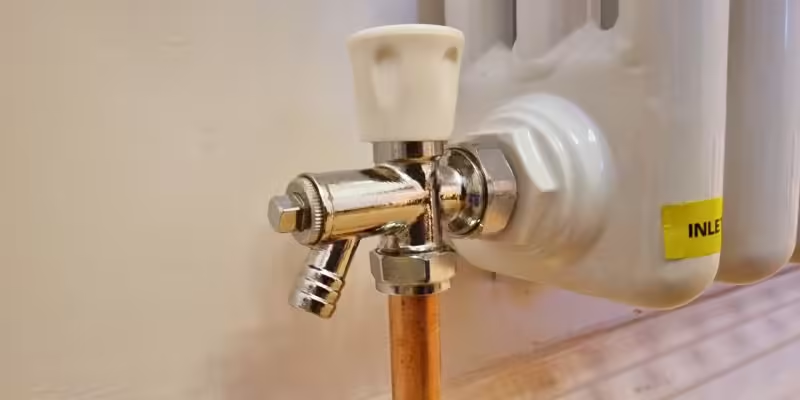
Open the pressure relief valve
Another way to reduce boiler pressure is to open the pressure relief valve (PRV). They are on every central heating system that has a pressure gauge. You simply turn it anti-clockwise (or pull the lever on some boilers), and the pressure will drop very quickly.
This is the easiest way to reduce boiler pressure but the problem is that once they’ve opened they might not close properly again. They can get a little bit of debris stuck in them so they never quite close fully and you are left with a tiny slow leak coming out of the blow-off pipe outside. This will tend to happen on dirty systems but most of the time it’s fine. If it does happen, you need to replace the PRV.
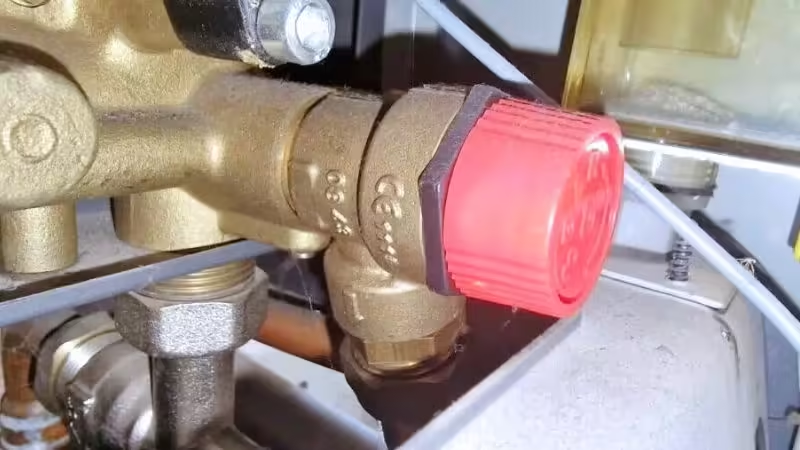
Crack a nut
Cracking a nut is another way to lower the pressure when it rises too high. This is one of the messiest ways to do it but a Plumb Tub makes it much easier. You can put towels and a bucket under a nut on the boiler, radiator valves, or anywhere on the central heating pipes. Then crack the nut until water starts coming out and keep an eye on the pressure gauge.
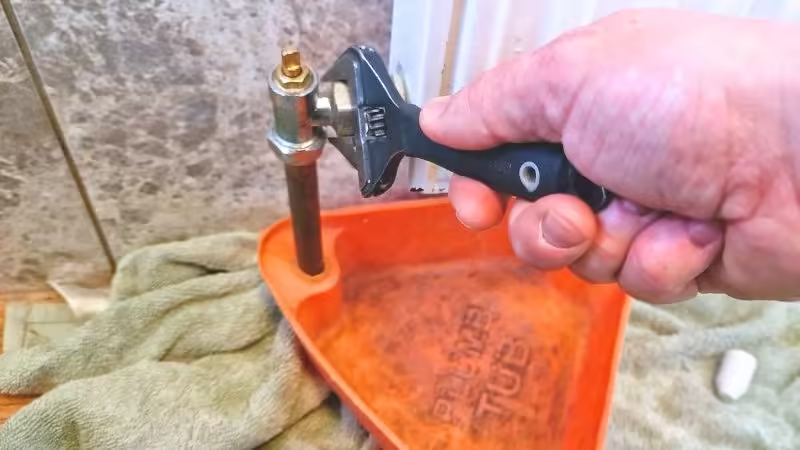
Magnetic filter
It is also possible to reduce the pressure via the central heating magnetic filter. You can place a towel and bucket underneath the magnetic filter then open the nut on the bottom (if it has one) or you can open the bleed valve with a bleed key. Let the water come out into the bucket and close it when the pressure gauge has dropped to around 1 to 1.5 bar when the system is cold.
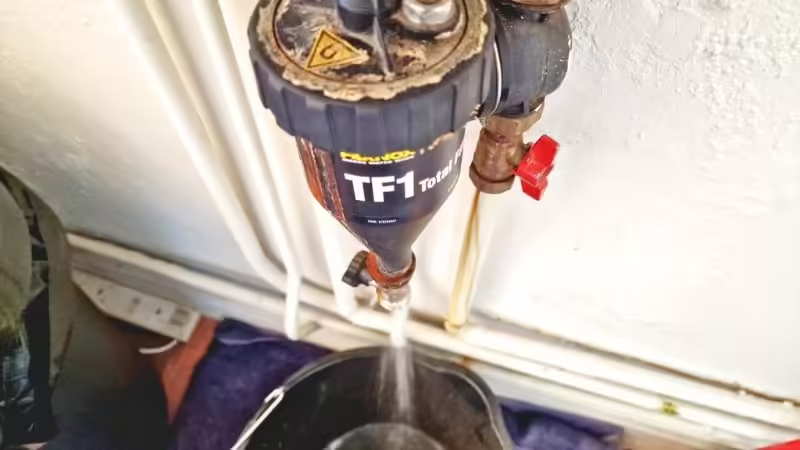
Why is the pressure too high?
Your boiler pressure is too high most likely for one of these reasons:
- Increasing the pressure too much: Reduce pressure by letting water out
- The expansion vessel has lost air or it’s damaged: Recharge or replace the expansion vessel
- The filling loop is not closed fully or damaged: Close the filling loop fully or replace it
- Leak on the heat exchanger: Replace the heat exchanger
Pressure too high when heating is on
It’s normal for boiler pressure to rise from 1.5 to 2 bar when the heating is on. If it’s rising to 3 bar you have a problem. Pressurised heating systems have an expansion vessel which takes some of the expansion of the heated system. If your pressure is too high when the heating is on, this will be because the expansion vessel has no air in it.
To fix this you must either recharge the expansion vessel using a pump or replace it if the diaphragm inside is split. You can find out if it’s split by pushing the Schrader valve in, if water comes out that means it’s split and the expansion vessel needs to be replaced.
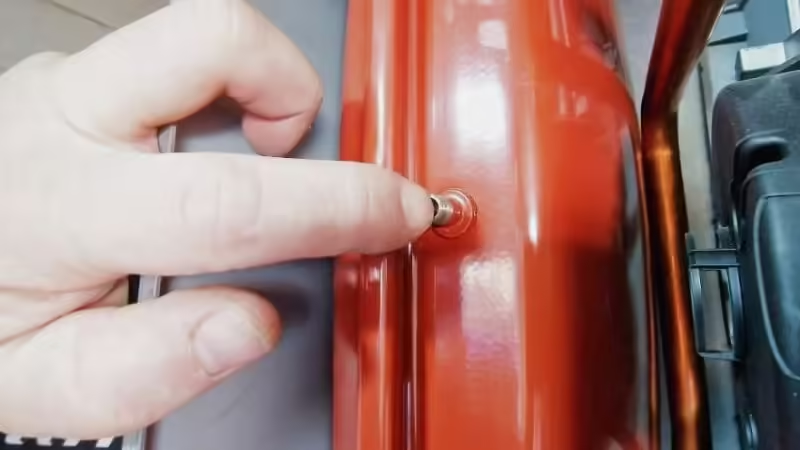
Is high boiler pressure dangerous?
High boiler pressure is not dangerous. Pressurised heating systems have a pressure relief valve (PRV) in them so when the boiler pressure reaches 3 bar, the PRV will open and let the water out to stop the pressure from building up to a dangerous pressure.
If the PRV is not working or the PRV pipe is capped off, then high boiler pressure can potentially be dangerous but I have never come across a dangerously high-pressure situation in over a decade of being a heating engineer.
Conclusion
High boiler pressure is a common issue usually caused by a lack of air in the expansion vessel. The most common solution is recharging the expansion vessel, which is straightforward for a heating engineer but tricky for first-timers.
If you've overpressurized the boiler, simply releasing water from the system is an easy way to lower the pressure.
Feel free to ask any questions in the comments below, and I’ll do my best to help. If you found this post helpful, please consider sharing it.
